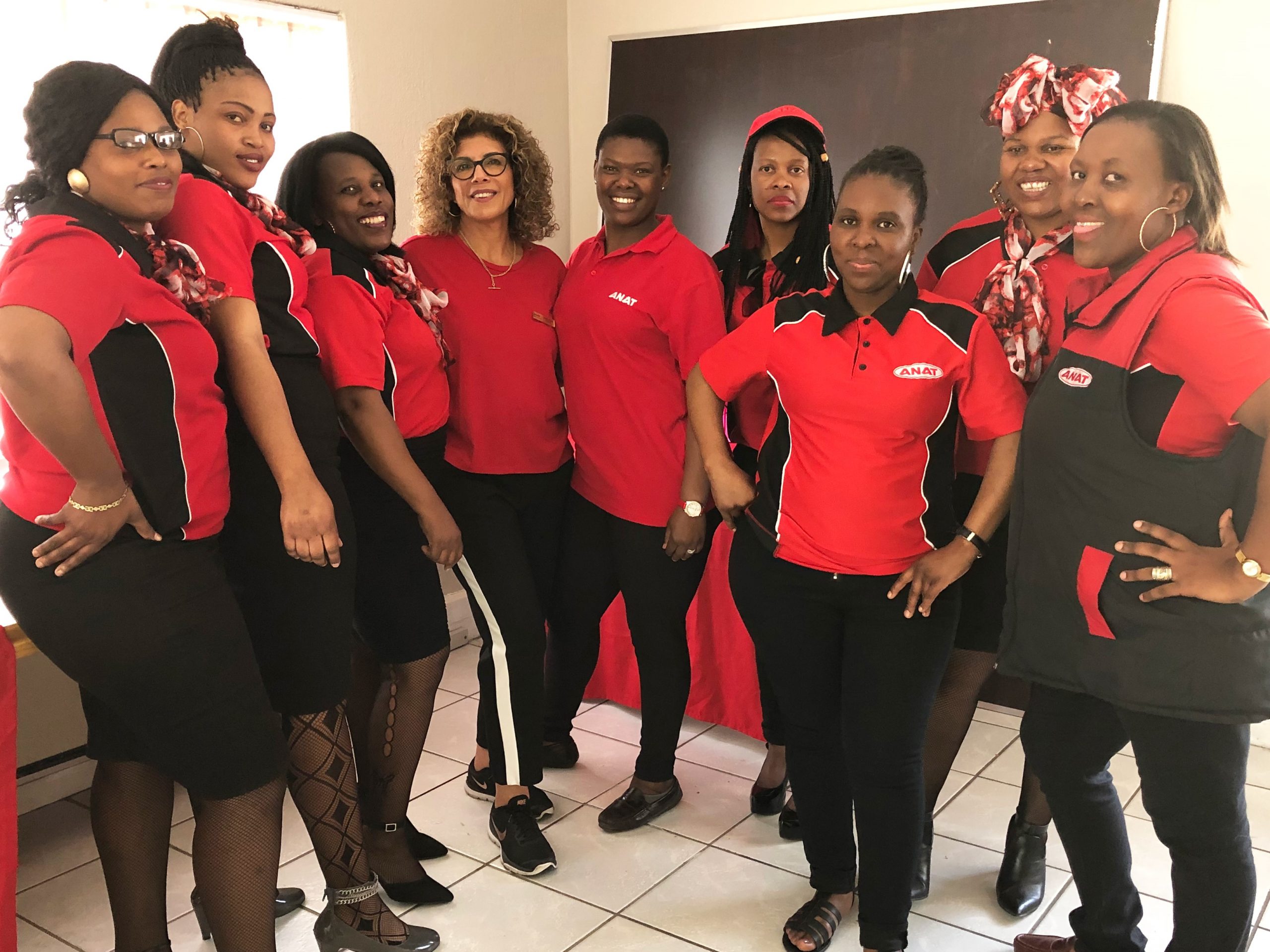click to dowload our latest edition
CLICK HERE TO SUBSCRIBE TO OUR NEWSLETTER


Published
4 years agoon
By
adminGILLIAN KLAWANSKY
These are the words of Anat Apter, who together with her husband Menachem, co-founded Middle Eastern takeaway brand Anat in 1992. Under lockdown, many entrepreneurs are in similar turmoil.
From humble beginnings, Anat now consists of two bakeries and centralised kitchens that supply 25 franchised takeaway stores as well as various supermarkets. “Almost 600 people rely on this business,” she says. “I feel a great sense of responsibility.”
Through its bakery – designated an essential service – the business is supplying a fraction of its clientele and employing a handful of staff. “If head office collapses, it means the franchises can’t continue,” says Anat. “We’re trying to avoid this eventuality.”
The immediate future looks grim. “Most of our stores are in shopping centres, and people are understandably reluctant to be in these spaces,” she says. “So post-lockdown, recovery could take months. There could be a boom in delivery, but this would have to be huge to ensure the stores don’t operate at a loss.
“Our business could collapse in the time we’re waiting for a response to our many funding applications. We can’t afford that,” says Anat. That’s why they’ve launched a R3 million crowdfunding campaign to support staff and keep the business afloat.
For Nadine Hocter, the founder of corporate massage company Sheer Bliss, COVID-19 has been devastating. “Since mid-March, we haven’t had a single sale. All bookings were wiped out.
“Having the greatest impact is the feeling that what I’ve built though years of blood, sweat, tears and sacrifice is gone,” says Hocter. “Yet, I still have a brand, business acumen, and the knowledge I’ve gained.”
But Hocter isn’t moping. She’s investigating ways to reduce operating expenses, and has applied for the relevant government relief funds. “I’ve always run this business debt free, though,” she says. “I don’t see the sense of incurring hundreds of thousands of rands in debt considering the level of uncertainty about the future.”
Hocter is heartsore for the almost 60 therapists she employs across the country. “They are not on my payroll, they are subcontractors without the benefit of UIF [Unemployment Insurance Fund]. If I do get funding, I’ll pour it into loans to therapists which they can work off when business picks up again.”
With remote working expected to remain the new normal after lockdown, Hocter’s adjusting her business model. “We’ll market home massages as much as possible,” she says. She is putting rigorous safety protocols in place to protect clients and therapists.
Rikki Kotzen, the owner of swim school Infant Aquatics Academy, has no idea when she’ll be able to resume operations. “Even after lockdown, we can’t open until the ban on sports activities in South Africa is lifted,” she says. In the meantime, Kotzen has been sending videos to families for kids to practice their skills outside of the pool.
While Kotzen used her business savings to pay her nine staff members for March and April, she can’t afford their May salaries if the school remains closed. “Even when we’re allowed to resume, it will be winter when we usually attract only half our clientele,” she says. “People will also be recovering from major financial losses so extra murals won’t be a priority. Of our 131 families who attended in term one, only 23 families have paid for the upcoming term. The cost of running a business like mine are far greater than you’d think. On average, it costs the swim school R100 000 a month to stay afloat. That’s just for one of my two premises.”
Kotzen has applied to the Oppenheimer Fund for salary relief, but hasn’t had any response. “There’s only so much debt you can get into though,” she says. “The worst part for me as a business owner is the prospect of being banned for much longer. Then, I’m not sure whether I’ll have a team waiting for me.”
“Men tracht und Gott lacht,” says restaurant owner, Andrew Human quoting a well-known Yiddish saying meaning, “Man plans and G-d laughs.” Having always dreamed of owning a restaurant, the former Loeries chief executive bought Blind Tiger Café in Parkview in September 2019. “Of all the businesses, who wants a restaurant now?” he laughs ruefully.
Human’s neighbourhood café and bar is a popular night spot, but as the restrictions on alcohol and crowds began in mid-March, turnover rapidly decreased. “Mixing food and alcohol is what makes restaurants profitable,” says Human. “If we’re allowed only a maximum of 50 people including staff members, and can’t serve alcohol after 18:00, it’s not economical.”
Human anticipates similar restrictions after lockdown. His business will probably have to add breakfast to its offerings, but it won’t have a captive market on the popular high-end street.
For now, Human is paying wages to his 25 staff members but can’t continue indefinitely. While he has investigated selling frozen meals over the lockdown period, it’s impractical. “It costs me less to stay closed than to make some frozen meals that won’t cover overheads.”
Human says the only viable strategy is to sell vouchers through restaurant booking platform, Dineplan. “We’re putting a 10% added value on the vouchers which will cost us more when we reopen, but if it helps us with cashflow now, it’s worth it.” With a customer base largely composed of regulars, Human is praying he’ll get the support he needs from those still earning salaries.

Devora Even-Tov
Apr 26, 2020 at 11:39 pm
‘It seems like we, the smaller fish, are battling even harder. we run a small carpet cleaning business with a staff of 6. We have been trying to pay our staff. We ourselves are starting to run out of funds and the future does not look rosey. We have applied to UIF to help the staff, only time will tell if that comes through for them. Unfortunately it will not help us as a family’